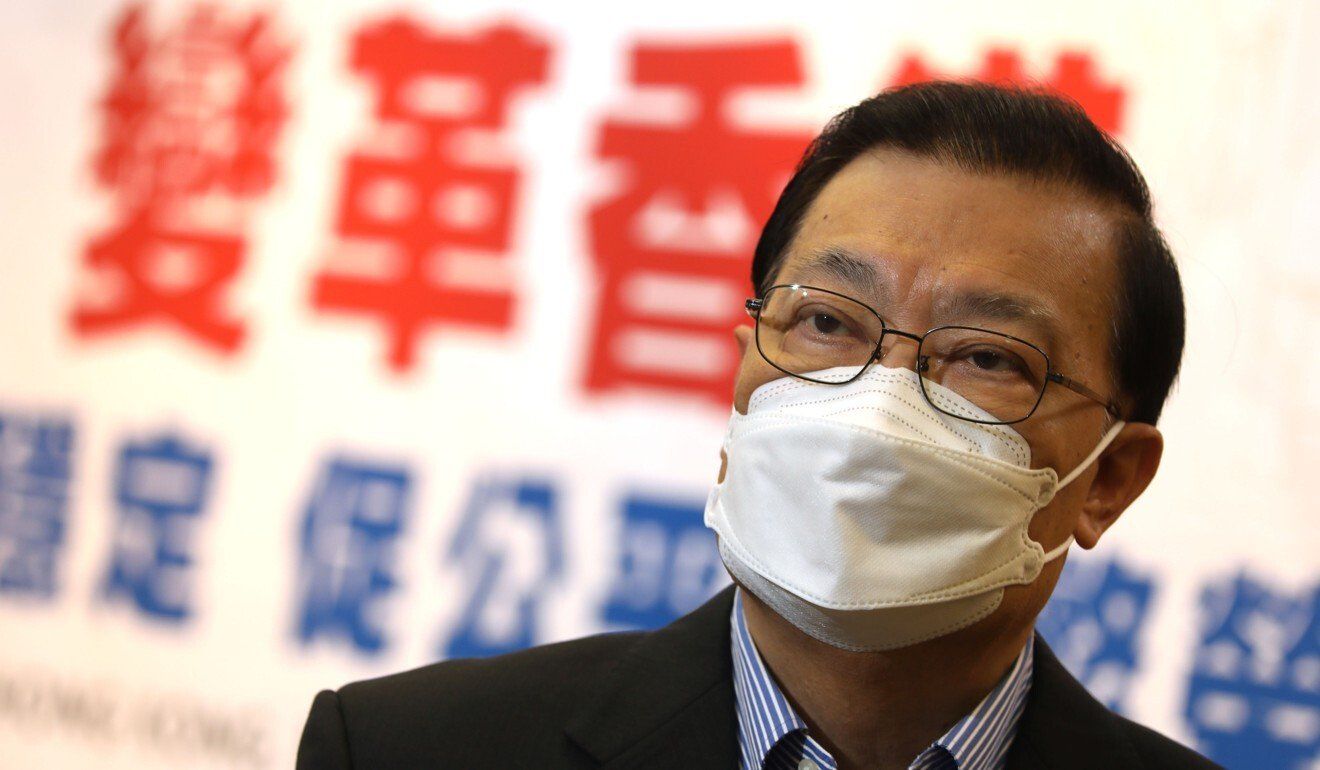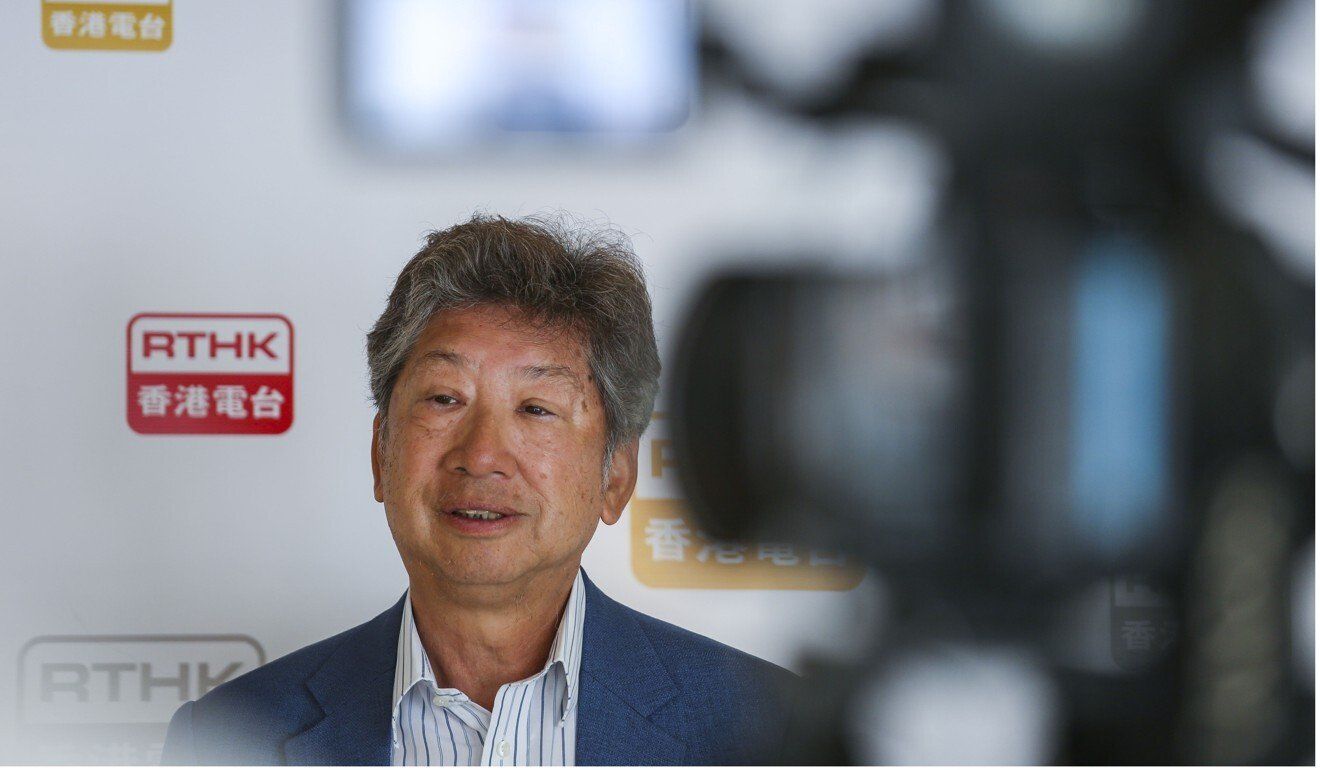Hong Kong News

Pro-establishment heavyweights push elections overhaul on eve of endorsement
Pro-establishment heavyweights have stepped up efforts to promote a planned shake-up of Hong Kong’s electoral system on the eve of its endorsement by China’s top legislature, acknowledging public disappointment and anxiety over an essentially done deal but holding out hope for democratic reform further down the line.
Tam Yiu-chung, the city’s lone delegate to the National People’s Congress (NPC) Standing Committee, and Executive Councillor Ronny Tong Ka-wah on Wednesday told the Post the looming overhaul was key to rebuilding Beijing’s trust in the city.
“We have the responsibility to promote it and tell people about the advantages of these reforms so they won’t be disappointed by the changes,” Tam said.
Those changes will take another step towards reality on Thursday afternoon, when the NPC is expected to sign off on a resolution authorising its standing committee to iron out the details of the looming overhaul.
Under Beijing’s plan, the number of seats on the Election Committee, which chooses the city’s leader, will be increased from 1,200 to 1,500, further expanding the pro-establishment camp’s dominance of the process.
The number of seats in the Legislative Council, meanwhile, will be increased from 70 to 90, with would-be candidates required to obtain nominations from Election Committee members, effectively leaving the fate of opposition candidacies to their discretion.
Pro-establishment leaders, including lawmakers Starry Lee Wai-king, Regina Ip Lau Suk-yee, Alice Mak Mei-kuen and Tommy Cheung Yu-yan, will hold a press conference at 4pm on Thursday to announce the launch of an alliance to collect residents’ signatures in support of Beijing’s decision.
In a video issued before the close of the Chinese People’s Political Consultative Conference (CPPCC) session on Wednesday, former Hong Kong leader Leung Chun-ying said changes were necessary specifically to screen out opposition lawmakers and activists who had asked the US government to sanction China and the city.
“We have to say enough is enough … No society would tolerate this. [The opposition] asked for it,” the advisory body’s vice-chairman said in his fifth speech on the subject since February 25.
Sources confirmed the amended resolution specified 1,500 and 90 seats for the Election Committee and Legco, respectively, though the composition of those seats had yet to be decided.
The parameters for the resolution include strengthening the “one country, two systems” principle, national security and improving the city government’s efficiency.
Tam said Hong Kong’s delegates to the NPC and its pro-establishment parties had been tasked with helping residents understand the planned revamp, adding he believed a majority of Hongkongers were ready for the change.
“I think that, compared with those who might feel upset, more people are worried about Hong Kong. They feel that if we don’t change the electoral system, the city will make the same mistakes sooner or later,” he said.
 Standing Committee delegate Tam Yiu-chung told the Post he believes that
Hongkongers who support the coming changes are in the majority.
Standing Committee delegate Tam Yiu-chung told the Post he believes that
Hongkongers who support the coming changes are in the majority.
Tam accused the opposition camp of using previous political reforms and elections as tools for challenging the central and local governments, and attempting to seize governing power in the city.
“People are worried, and when Beijing decided to take action, many supported it,” he said.
Pro-Beijing group the Hong Kong Research Association on Wednesday revealed the results of a new study in which 69 per cent of respondents were said to be supportive of Beijing’s planned changes.
The poll, which interviewed 1,000 residents from March 5 to 9, also showed 78 per cent agreed that having “patriots governing Hong Kong” would help the “one country, two systems” principle going forward.
Tam also said it was up to the NPC to kick off the reform process, as the central government was reluctant to rely on Hong Kong’s government to do it.
“In 2014, Beijing fully trusted Hong Kong. But Occupy broke out, parts of the city were brought to a standstill for 79 days, and we achieved nothing,” he said.
Tong, who was among those briefed on the changes at a high-powered seminar in Shenzhen last month, agreed.
But he said he held out hope both sides would be ready for more democratic reforms once the relationship between Hong Kong and Beijing had improved in the near future.
“It’s inevitable that some people will feel disappointed by this,” he said.
“I hope that after the central government amends Hong Kong’s electoral system, it will feel confident that the loopholes have been plugged, and that the atmosphere will be more conducive for political reform discussions.”
 Executive Council member Ronny Tong said he believes there will be more
room for democratic reforms once Beijing’s confidence in the city is
restored.
Executive Council member Ronny Tong said he believes there will be more
room for democratic reforms once Beijing’s confidence in the city is
restored.
Tong said the mutual trust between Hongkongers and the central government was now “at a low point”, while the city’s social atmosphere has been pervasively negative due to the 2019 social unrest and the ongoing coronavirus pandemic.
CPPCC delegate Eliza Chan Ching-har, meanwhile, said that for ties between Hong Kong and the mainland to be mended, the city’s public officers must be not only loyal, but capable.
“If the patriots administering Hong Kong are … well-respected individuals in the community who are truly dedicated to formulating or supporting policies beneficial for Hong Kong’s economic development … I am very confident that the trust between Hong Kong and mainland China can be strengthened,” she said.
“Improvement to the present electoral system is urgently needed to enhance the governance capability of the Hong Kong government; and to ensure that lawmakers can refocus on resolving deep-rooted problems and improving the livelihoods and well-being of the Hong Kong people.”
Apart from consulting pro-Beijing heavyweights in Shenzhen and Beijing, the central government’s liaison office also met various pro-government groups and parties on Monday and Tuesday.
Tourism sector lawmaker Yiu Si-wing said he and a few other lawmakers had met with a deputy director of the liaison office on Monday where mainland officials explained why Beijing needed to amend the electoral system to achieve its goal of “patriots governing Hong Kong”.
Another pro-establishment lawmaker, who spoke on condition of anonymity, said she had recently met with different authorities to discuss the reform.
She said while some media reports have suggested the number of seats allocated to the Legco’s geographical constituencies could drop from 30 to 20, she hoped they would at least be kept at their current numbers.











